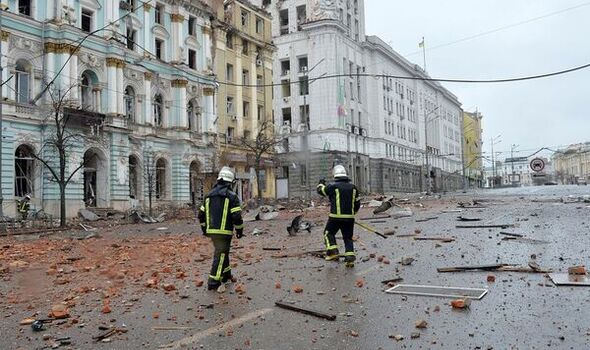
Human lives are the biggest loss and the biggest problem of the war in Ukraine, World Bank President David Melpass said.
But there are also huge economic problems that will be felt far beyond Ukraine.
“The war in Ukraine is happening at a bad time, because the world inflation is already at a very high level,” he said.
The Consequences will be Enormous
“The losses of the Ukrainian economy due to the war will amount акщь one third to one half of GDP. According to another estimate, it is about $ 500 billion”, stated by Finance Minister Serhiy Marchenko in an interview with Forbes.
“The negative consequences of the war will be enormous. The 10 areas where hostilities are taking place account for half of GDP. The most important areas are Kharkiv, Kyiv and Mariupol, which have made a very significant contribution to GDP. Many logistics chains have been completely destroyed, many enterprises have been ruined, some business cannot work in wartime, and many employees have left. The Ministry of Economy estimated that the losses would amount to one-third or to one-half of GDP. According to another estimate, it is about $ 500 billion. It will be possible to calculate precisely after the war,” Marchenko said.
According to the IMF Staff Statement on the Economic Impact of War in Ukraine, in addition to the human toll, the economic damage is already substantial.
Sea ports and airports are closed and have been damaged, and many roads and bridges have been damaged or destroyed. While it is very difficult to assess financing needs precisely at this stage, it is already clear that Ukraine will face significant recovery and reconstruction costs.
Ukraine has already requested emergency financing of $1.4 billion under the IMF’s Rapid Financing Instrument. Staff anticipates bringing this request to the Executive Board for consideration as early as next week.
Cereal Production and Energy
In the first place, and especially for the poorest, the war will hit further the growth in the prices for energy, says the Chairman of the World Bank.
The second big problem will be the further rise in food prices, which were already at record highs.
David Melpass reminded that both Ukraine and Russia are large producers of grain. According to JP Morgan, almost 30% of world wheat production is in Ukraine and Russia.
In addition, Ukraine is the world’s largest exporter of sunflower oil (Russia is in the second place). Together, they produce up to 60% of the world’s sunflower oil.
According to the Chicago Board of Trade, wheat prices have now reached a 14-year high.
“It is simply impossible to settle the issue with the loss of these supplies quickly, it will put additional pressure on prices,” said David Melpass.
The same is true of Russia’s energy supplies to Europe, where governments have “ignored alternatives that would have enough electricity.”
Countries that have very close economic links with Ukraine and Russia are at particular risk of scarcity and supply disruptions and are most affected by the increasing inflows of refugees. Moldova has already requested an augmentation and rephasing of its existing IMF-supported program to help meet the costs of the current crisis.